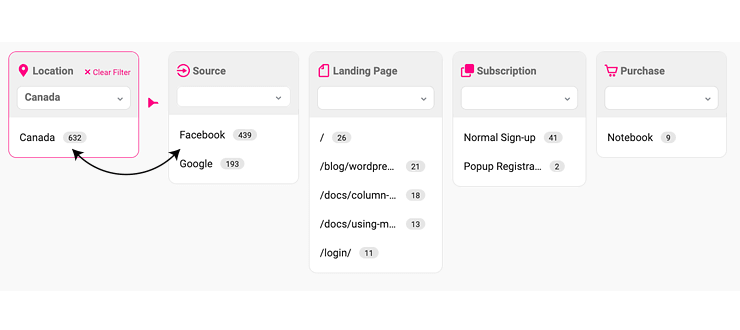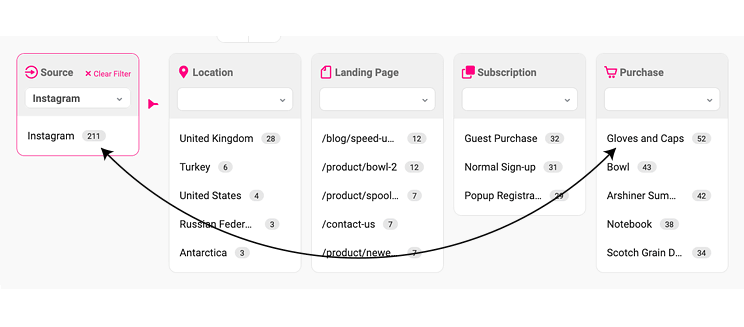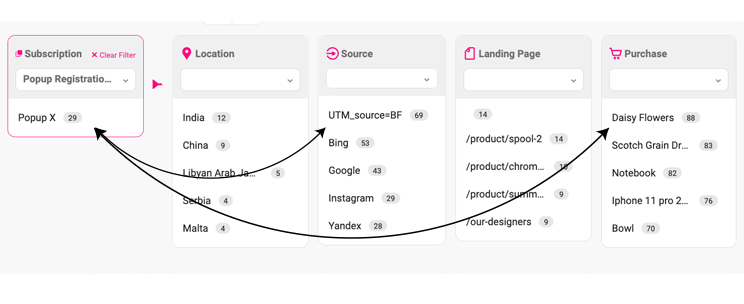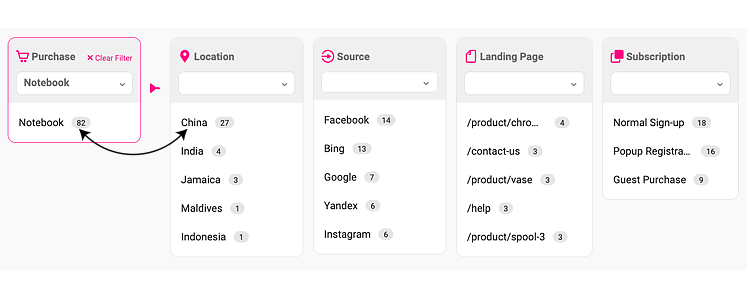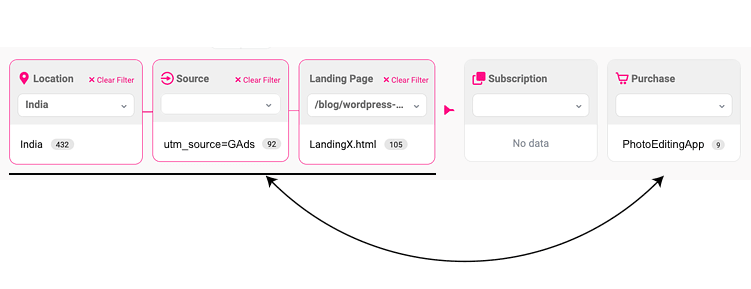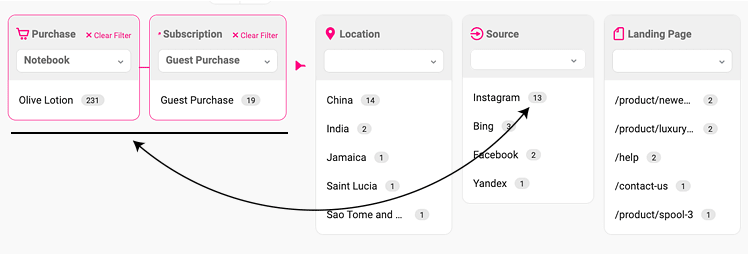
Automated Marketing for WordPress: How To Make it Personal
Earlier in May, we introduced Growmatik: an all-in-one personalized automated marketing for automation tool for WordPress and WooCommerce. Growmatik automates your marketing and personalizes your customer experience across their journey through personalized web pages, emails and popups.
This release is a successor to our early codename Odise, which we released earlier in March. With this release, we applied the first round of changes and improvements to the product based on feedback we got from our early users. Most important of which was user onboarding from WordPress admin. We solved and smoothed out serious onboarding obstacles with this release and also collected an enormous amount of feedback from users to reflect on for future releases, including some very exciting new features you can expect in a few weeks!
This post is a quick introduction to automation in Growmatik, as well as its goals and features at the current beta stage. So let’s jump in!
What has led to Growmatik?
At Artbees, our experience of working with more than 135,000 Jupiter X users over years showed us that the main problems of users was not creating and maintaining WordPress websites – but it’s the fact that there’s no solid solution for personalization and automated marketing for WordPress.
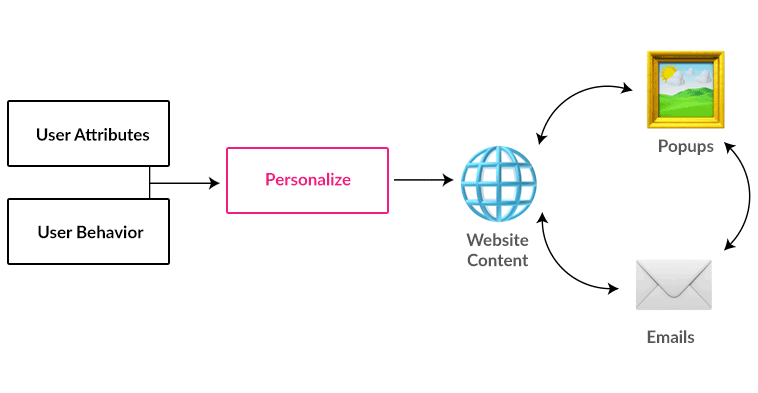
A good marketing solution personalizes your message based on user types and behavior across all of the touchpoints (website content, popups, emails). Most marketing tools focus on one or two of these channels such as personalizing emails or the website content separately. But an efficient marketing campaign should run personalization across different channels and in harmony with one another.
This lack of a comprehensive tool is seen more in the WordPress and WooCommerce space where marketing automation solutions are fragmented and disunified. And the majority of them are not natively built for the WordPress platform.
We built Growmatik to be the intersection of automation, marketing and personalization for WordPress. It reveals the customer journey in a WordPress website and automatically personalizes it for each user across all touchpoints: web pages, emails and popups.
Why does personalization matter?
Marketing is no longer a one-size-fits-all nowadays. In a world overrun by advertising and marketing, the only relevant marketing is a personally tailored message. The aim of personalized automated marketing for WordPress is to provide a custom message to each user based on certain attributes, history and preferences.
Is the user new? Where were they referred from? At which point did they enter your website? Is the user a loyal customer with a good purchase history who visited regularly or a slipping user you’re concerned about losing? The message you use for each of these users should be different.
Respectively the goal of marketing automation should also no longer be only automating repetition and eliminating legwork but the inclusion of various conditions to personalize the content that they automate.
The main touch points in a typical customer journey in WordPress are:
- Landing page
- CTAs and forms
- Onboarding & nurturing emails
- Blog posts
- Marketing campaigns (popups, email, search, Facebook, etc)
- Upselling & retention emails
Personalized marketing activities should happen across all touchpoints and in relation and accordance with each other.
What is an ideal automated marketing for WordPress?
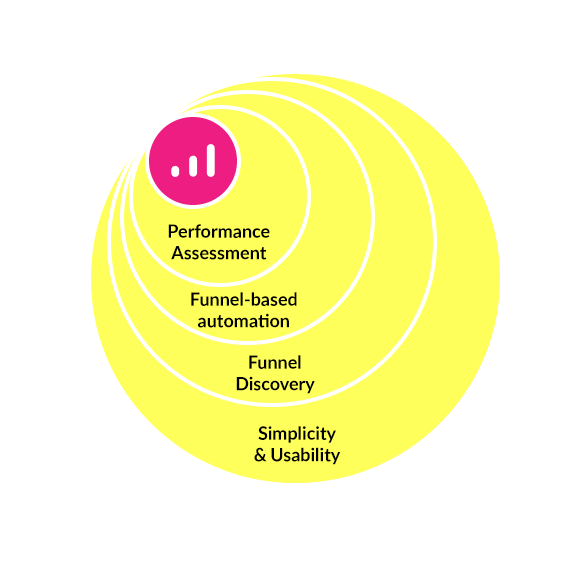
Simplicity and Usability
Marketing tools that use multiple channels for personalized automation (see: the SalesForce marketing Cloud and Hubspot) are often an endless combination of features and tools integrated in one big product, making them more bloated and hard to work with. An ideal automated marketing for WordPress gives you maximum control within an easy procedure and optimal UX.
Funnel-oriented automation building
A funnel-oriented architecture assures building journey-level automations rather than automations focused on a singular channel or campaign. Such design is tuned natively to create, manage and assess automations for different segments and funnels.
Funnel discovery & assessment
You should be able to easily filter down your customer journey by different dimensions/journeys by the attributes you care about and assess the performance of each of the segments efficiently.
Growmatik Trio: Discover > Automate > Measure
If there ever was a marketing overmind, it would do this trio flawlessly:
Discover > Automate > Measure
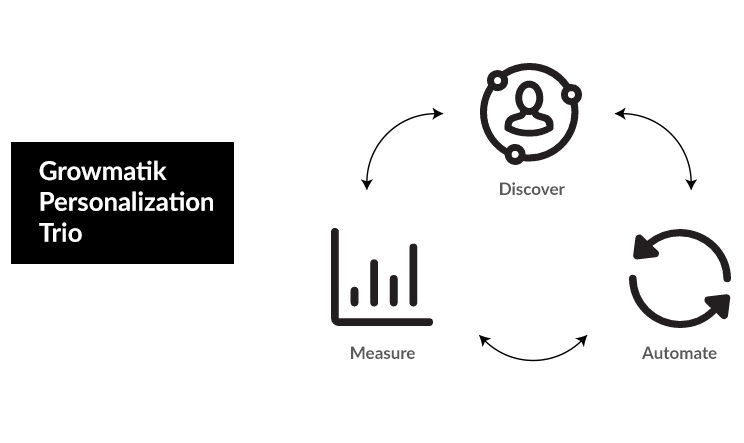
- A tool that helps you unveil the activities coming through all funnels that lead to the most sales, your most dedicated customers and what promotes growth or whatever your business is pursuing.
- And then it allows you to efficiently build automations to personalize the experience for each segment.
- The tool returns with results for each personalization automation and helps you understand and decide what’s next.
“This three-step process will run infinitely, and your message will keep getting refined and enriched based on different segments and even each of your users.”
Step 1: Discover segments
Your website has 5 main pathways toward a conversion
Location → Traffic Source → Landing Page → Subscription Channel → Purchased Products
With Growmatik, you can browse the top items within each of these funnels and reveal the customer journey for each of the segments. For example, discover which countries bring in the most traffic and reveal these visitors’ journeys on your website. Here are some more examples:
Canadians
→ were mostly referred by Facebook.
Visitors referred by Instagram
→ have mostly ended up buying gloves and caps.
Those who have signed up from the Popup X registration form
→ are mostly referred by the Black Friday discount campaign and ended up buying daisy flowers.
Users who have ordered landscape printing
→ are mostly from China.
Or you can reveal more complex journeys by compound factors. For example, reveal the journey taken by the segment Country X + source Y + landing Z (which means those who are from country X and referred by website Y and landed on page Z). More examples include the following:
Users from India
+ that are referred by Google search ads
+ and arrived on landing page X
→ have mostly bought the photo editing app.
Customers who have purchased Olive Lotion
+ via the guest checkout
→ are mostly referred by Instagram.
Step 2: Automate Personalized content for each segment
After getting insight into your website funnels and finding the ones that matter to you, it’s time to optimize their experience by personalizing your content for each WooCommerce segment with automations. Here are some sample automation suggestions:
Personalize geolocational content to top referring locations
Show the translated version of your landing page to Brazilian visitors:
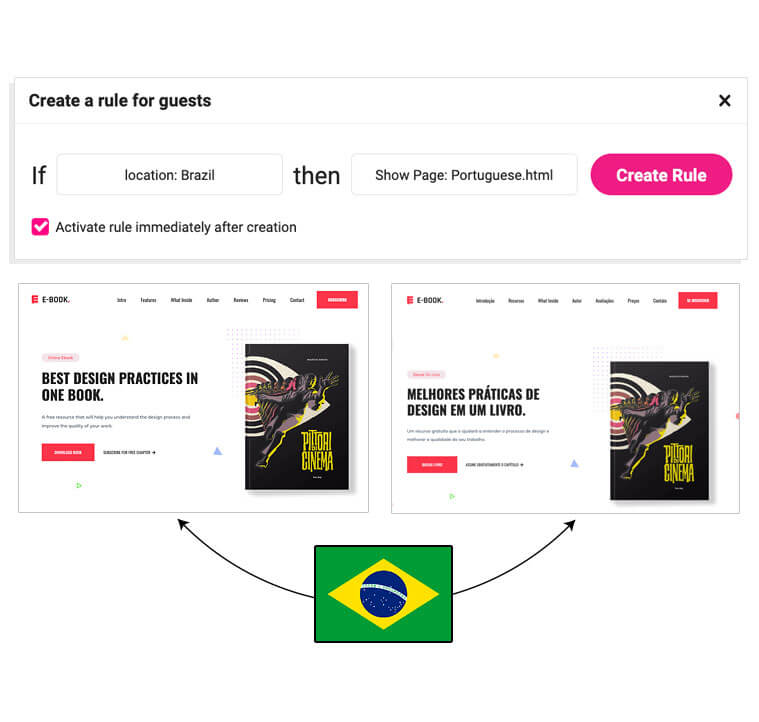
Show translated versions of popups based on their native language.
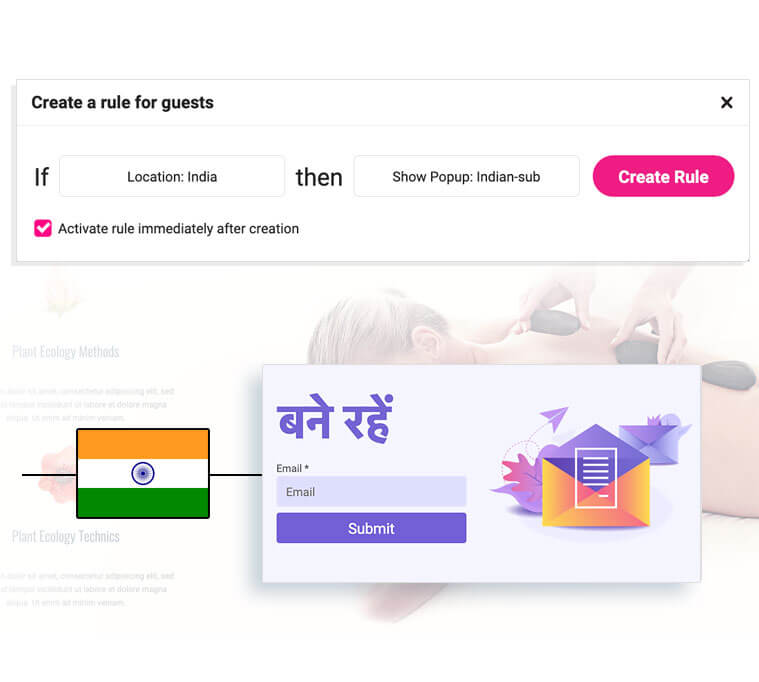
Personalize content for different devices
Create automations for specific device types such as desktop, mobile and tablet.
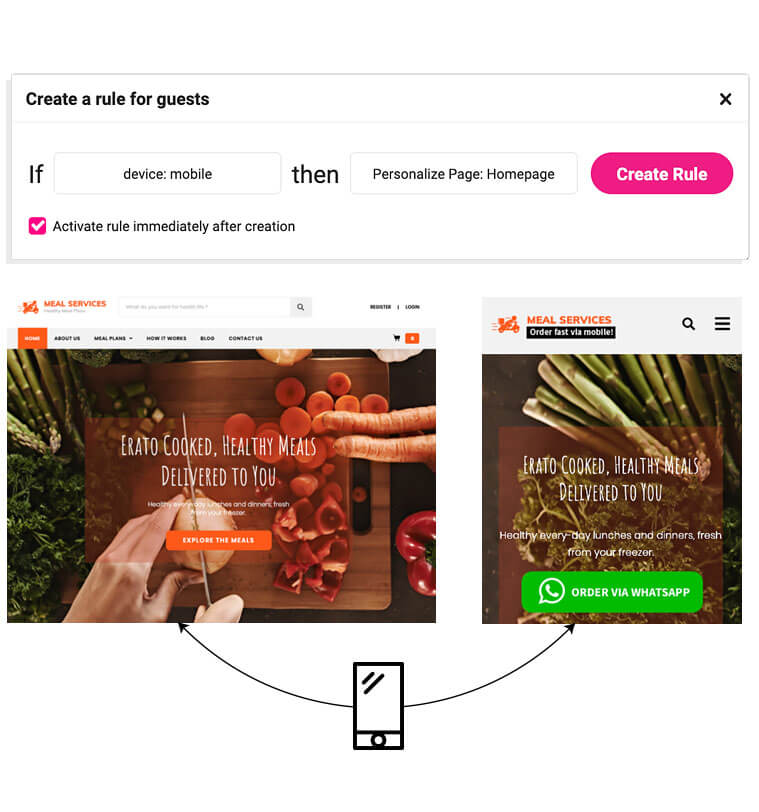
Personalize greetings with name, date and time
Show personalized greetings based on a calendar occasion.
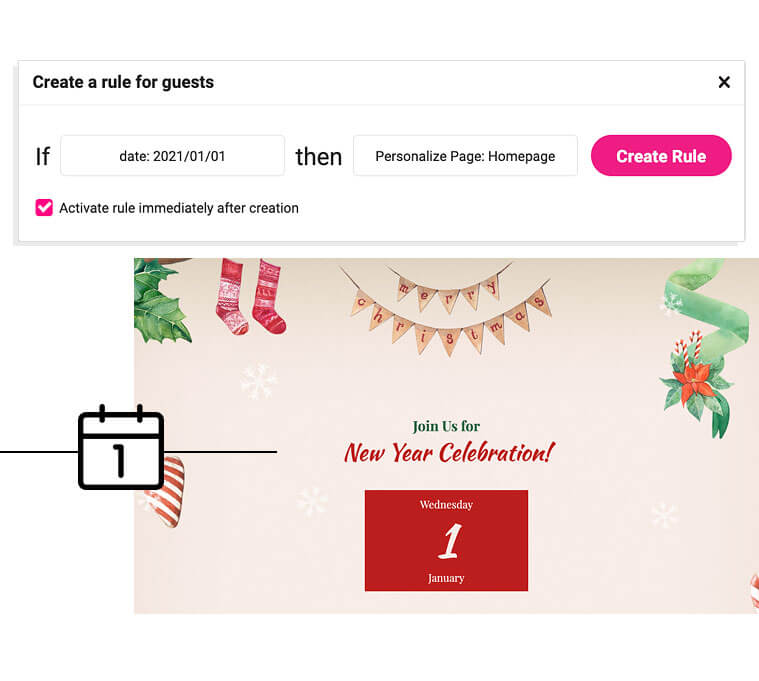
Show personalized greetings based on the visitor’s local time.
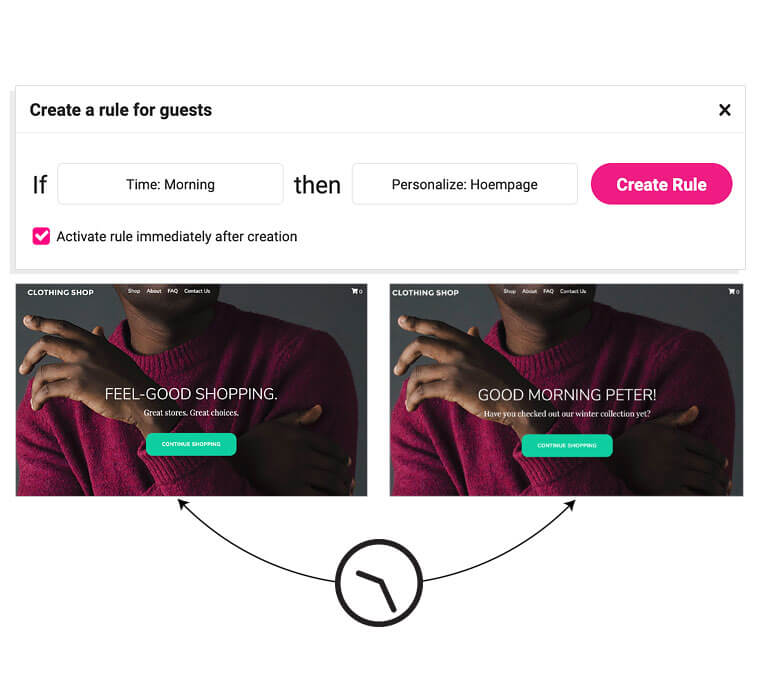
If a calendar occasion is approaching, include symbols and possible promotional elements such as coupons in your call-to-actions and popups.
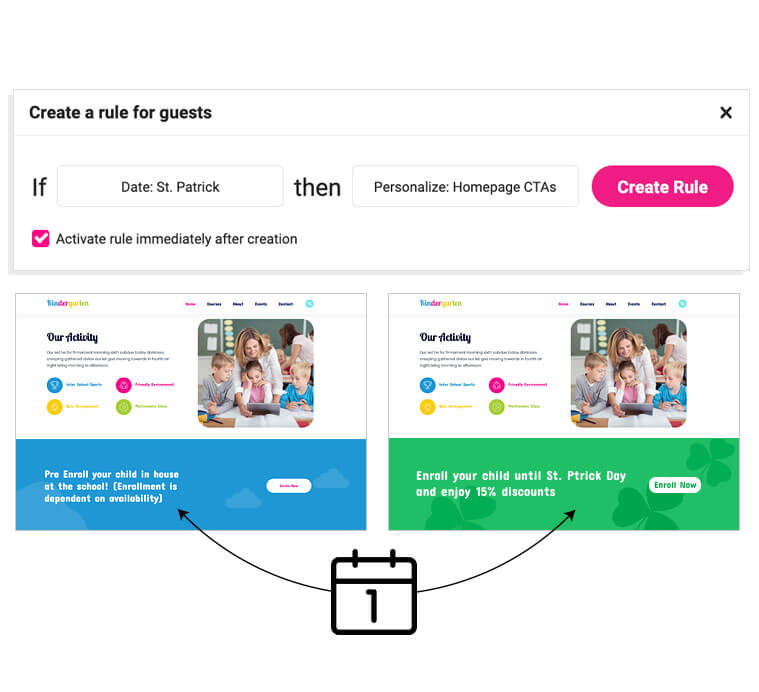
Show occasional popups with exclusive time-bound deals with your lead’s or customer’s name on it.
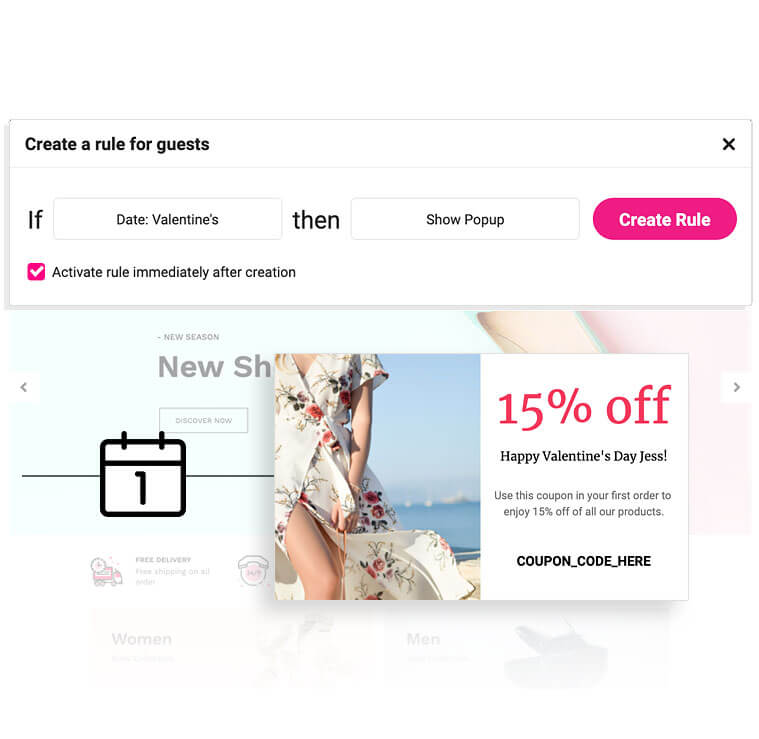
Personalize landing page based on referral source
Website personalization for WooCommerce helps you increase your paid ads ROI. If a user is coming from your Adwords ad for ‘Leather boots,’ personalize your hero image with photos of your leather shoe collection, and if it’s the ‘sneakers sale,’ show you sneakers collection with a discount coupon next to it on your landing page.
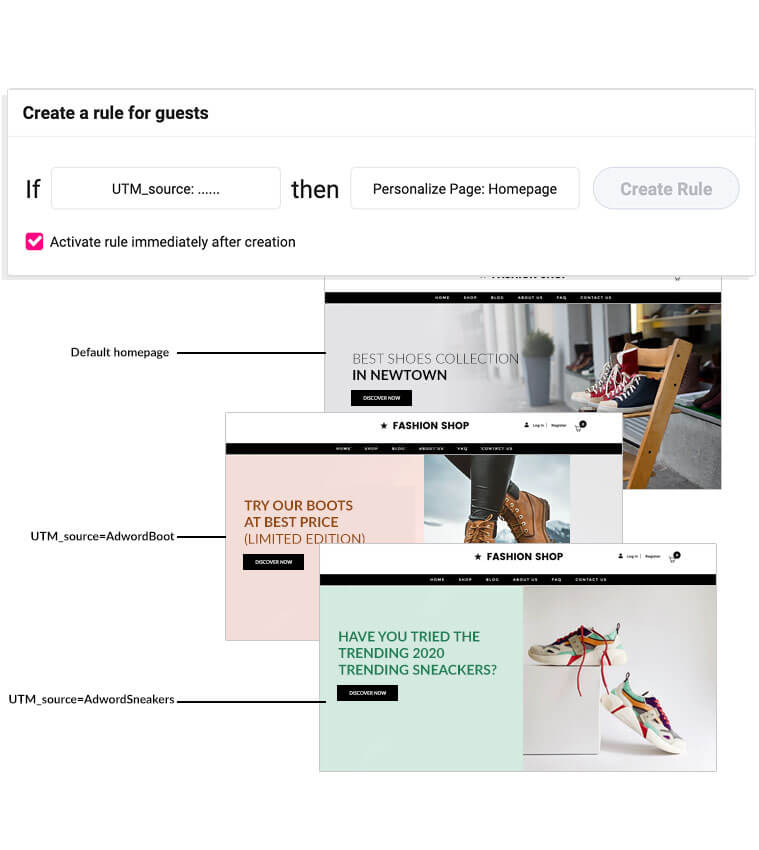
Personalize landing page with dynamic content
Show a visitor’s name (if a lead or customer) in your homepage greetings.
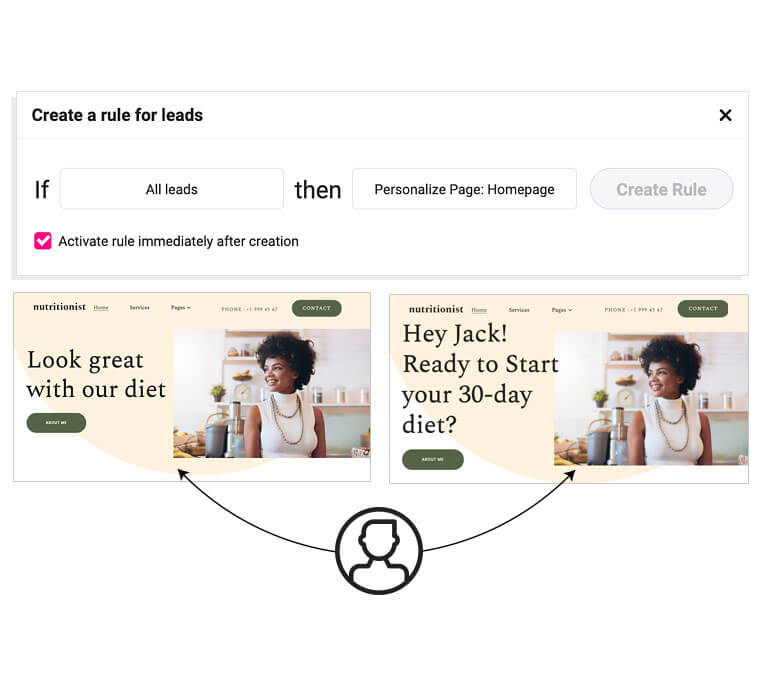
Insert the UTM link parameters in your external ad campaigns and by using dynamic content on your landing page, personalize the hero section, headings and call-to-actions with the UTM values.
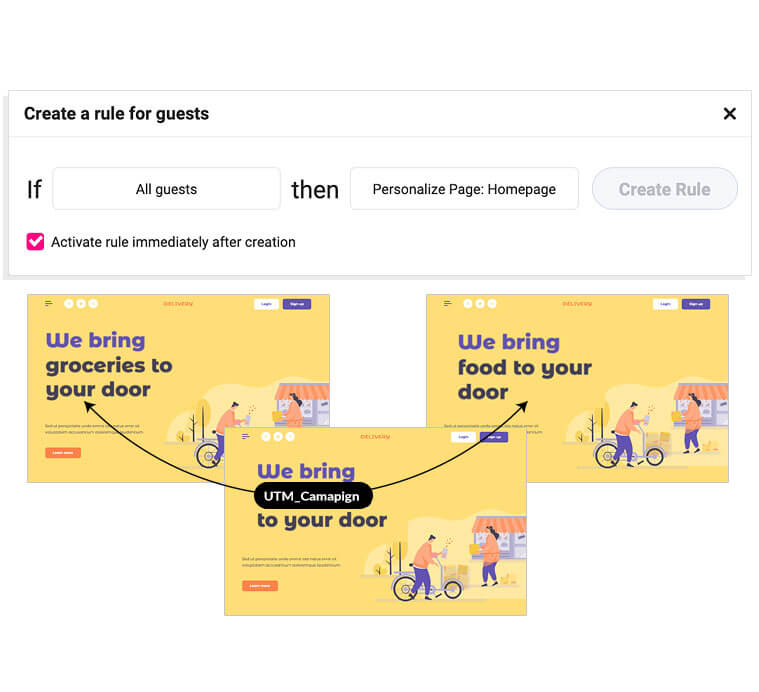
Personalize based on in-site behavior
Display a popup based on the length of time the user spent scrolling inside a page.
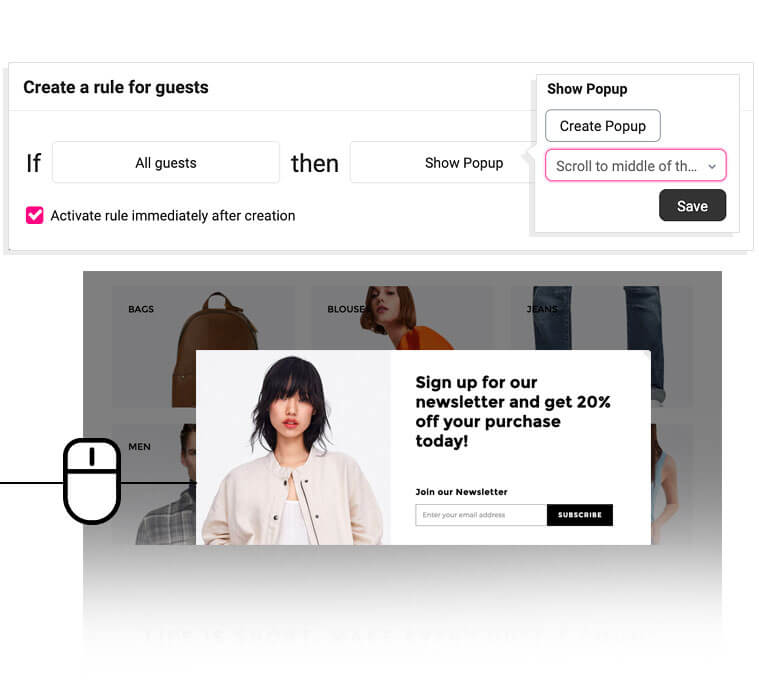
Display a subscription popup or coupon upon the user’s exit intent.
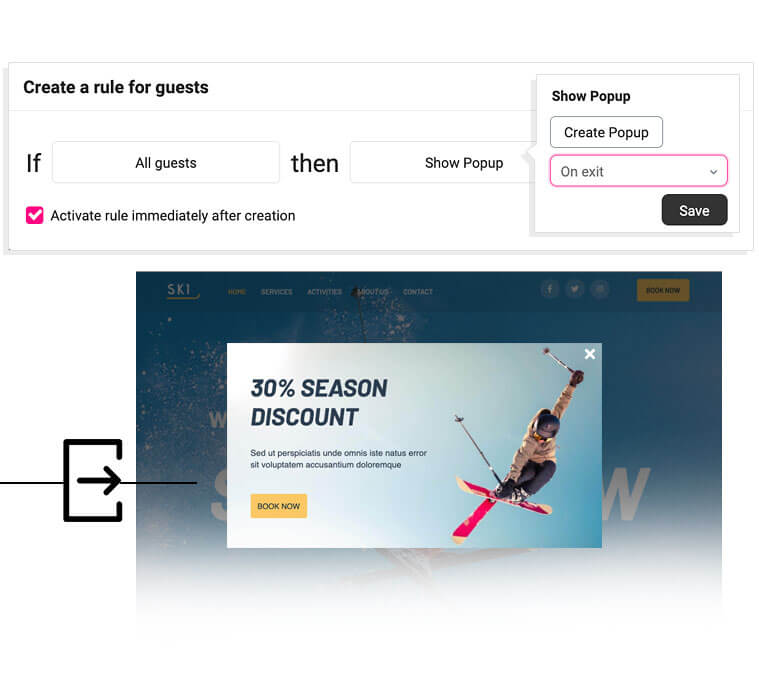
Send a personalized appreciation email when a user spends a specific amount of time on your website.
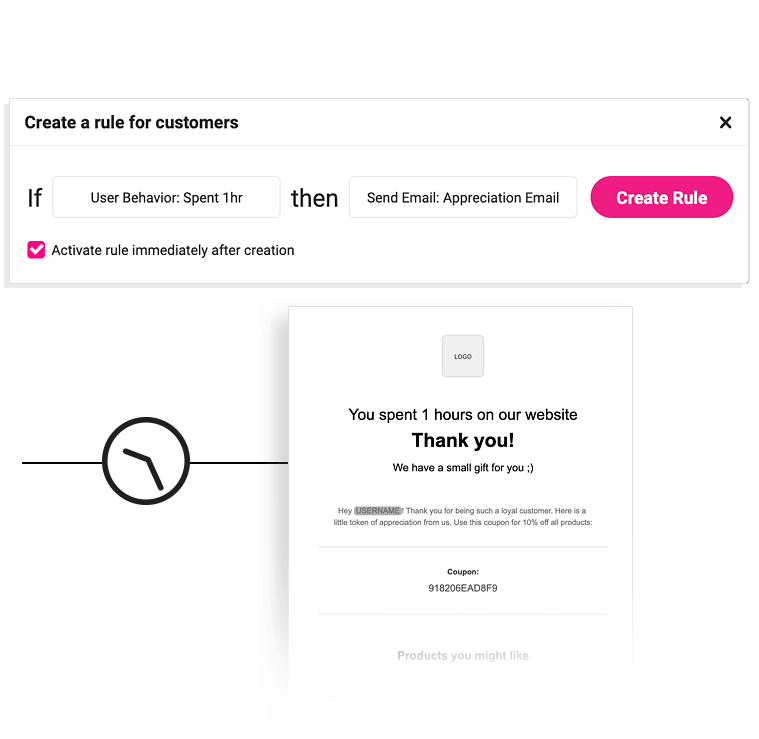
Nurture leads with emails suggesting related blog posts based on their in-site browsing history.
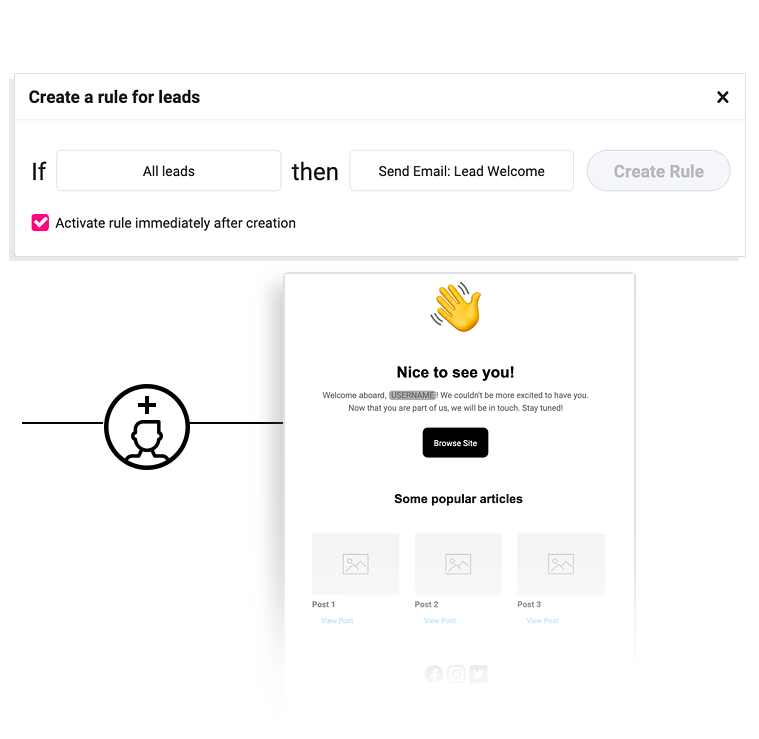
Personalize based on WooCommerce customer behavior
If a customer has been away for awhile, send an automatic email including relevant content and possibly a freebie, coupon, etc.
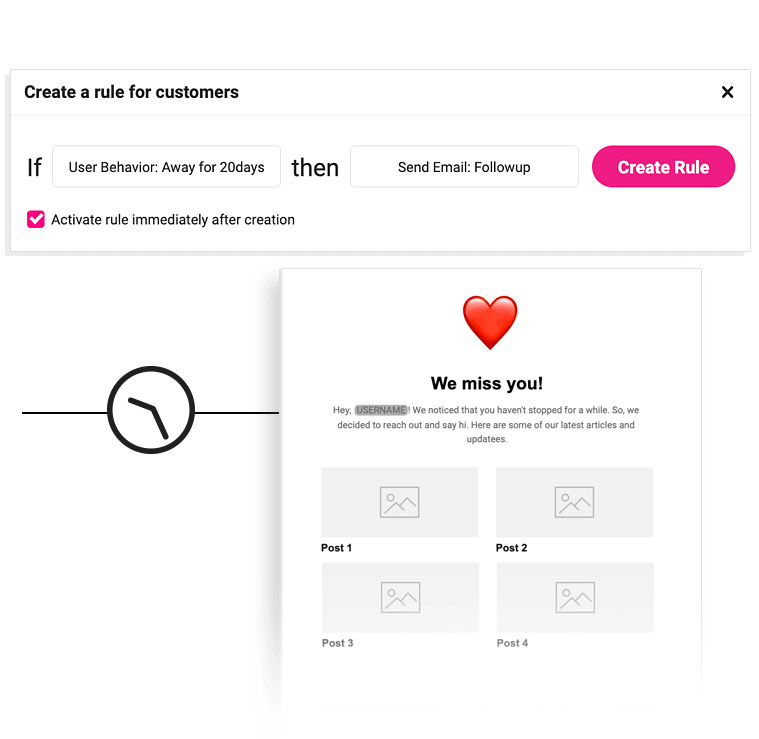
Send an email or display a popup with a coupon if a user has abandoned their cart.
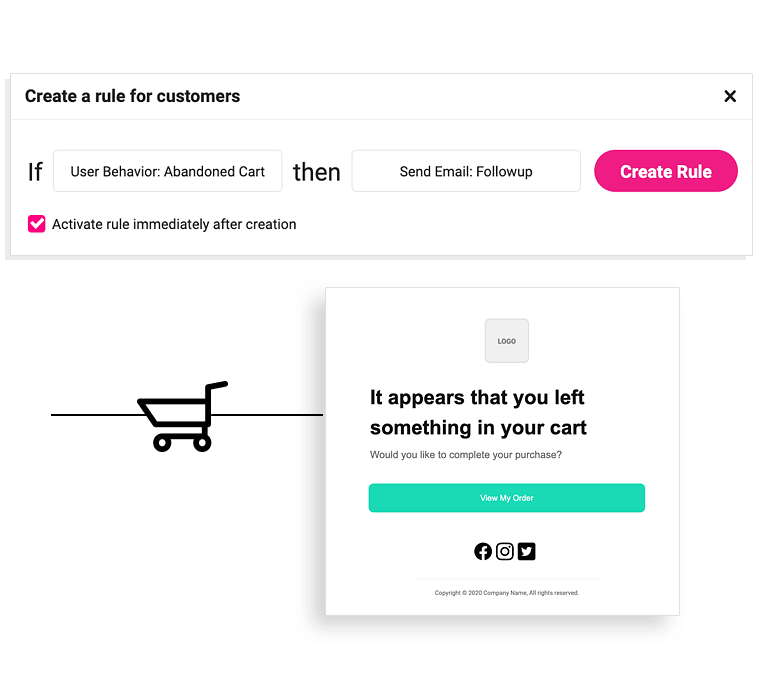
Send an appreciation letter to loyal customers
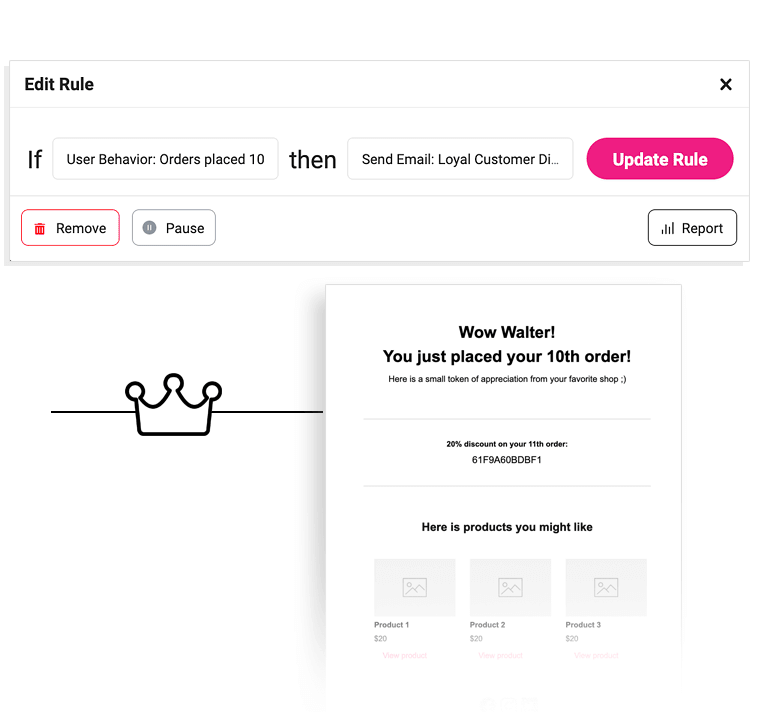
Send a welcome email to new customers and suggest cross-selling items.
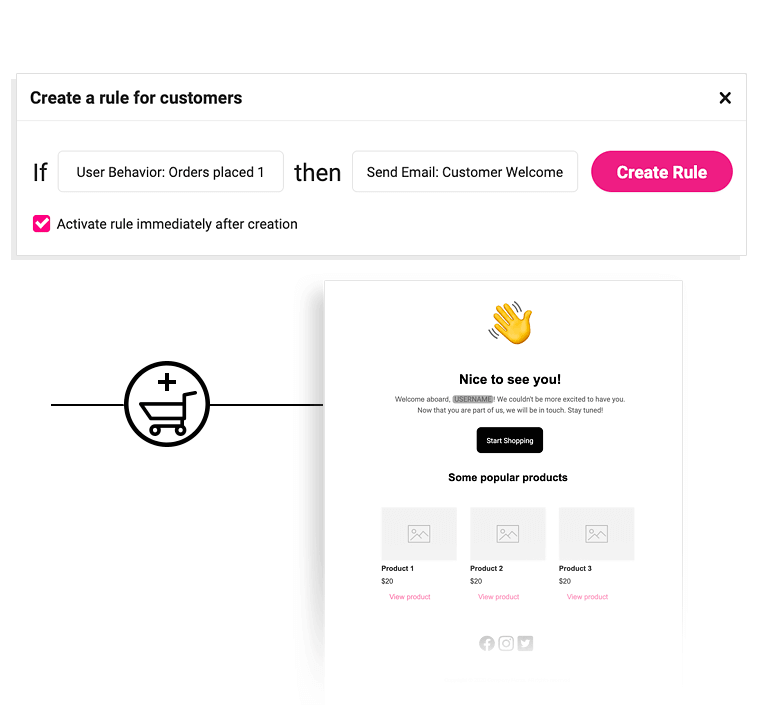
Send occasional emails such as Happy Birthday, Merry Christmas, etc messages with discount coupons.
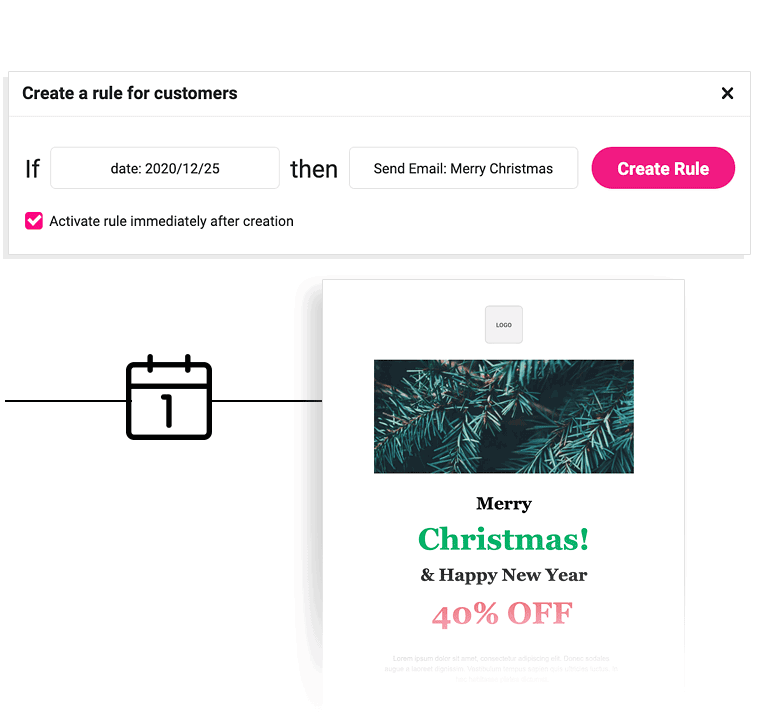
Send upselling emails based on the customer’s recent purchase.
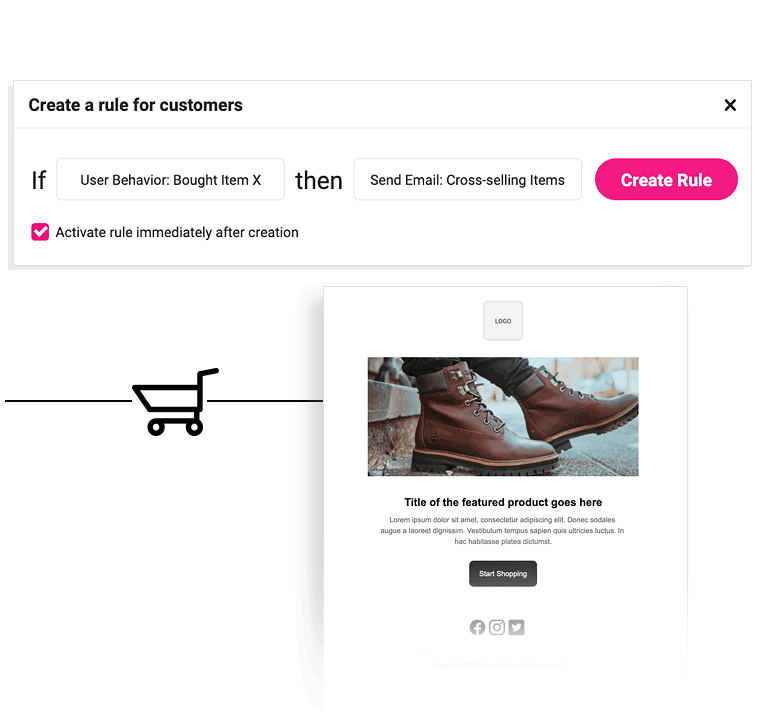
Personalize based on page visits
Personalize the content of a page based on the pages users have visited in the past. For example, if a lead checks the legal counseling page and they later check your homepage, they will see an alternative intro section about legal counseling.
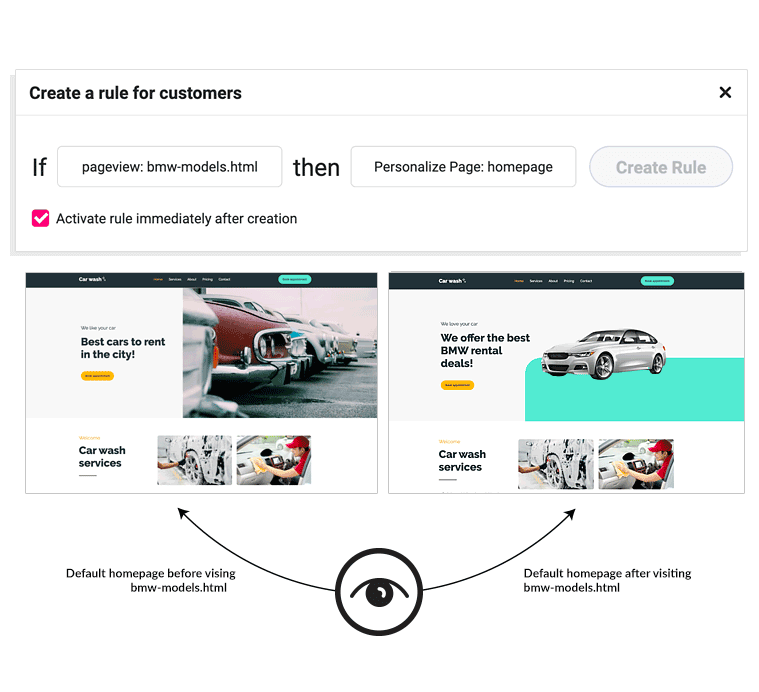
Show popups related to the visited page (possibly with a special offer).
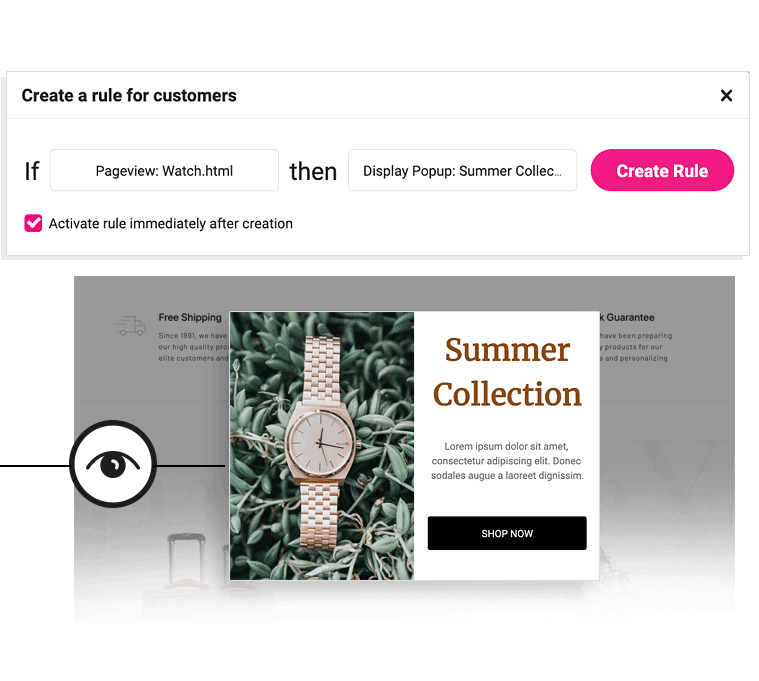
Step 3: Measure your automations
We discovered the important funnels and personalized website content and emails for those segments. The last step is to measure the effectiveness of our personalization, so we can make informed decisions about what to do next.
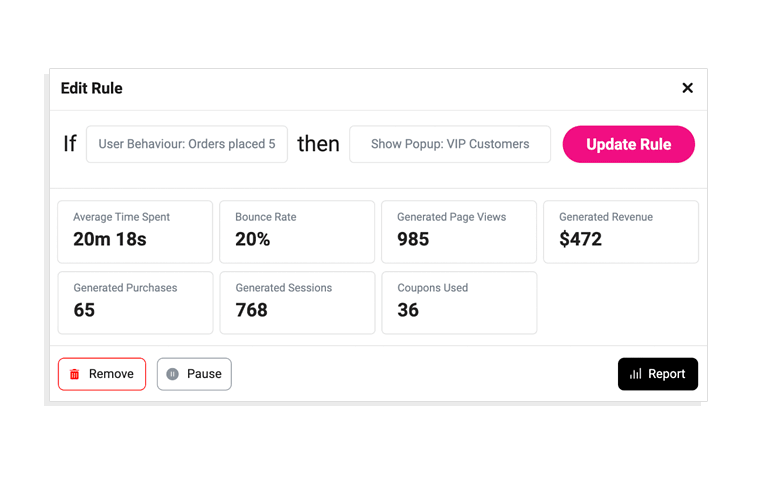
The metrics you should review vary based on the type of personalization you consider. For example, if you have automated “IF customer order count is 5 THEN show VIP popup,” the metrics you may consider are: average time spent, bounce rate, generated revenue, coupons used and generated purchases.
Furthermore, you can review the funnels you discovered earlier after the personalization automation for that segment has started and see if the performance has changed.
What’s next
With performance review takeaways, you are ready to decide on which step to take. At this point, you can go back to the first step and investigate the funnels and segments and see which of them can proceed to the next round of personalizations. You may need to continue with some of the automations you already created if they were effective or remove them if not. You can also add new automations based on the research finding in the discovery step every time.
Growmatik is an ideal tool to practice the model we discussed. This model will assure a lean, dynamic and, most importantly, effective marketing life in your business. Your marketing always reflects your goals, reduces wastes and refines itself to better meet your expectations. Your visitors, leads and customers on the other hand are also delighted by personalized automated marketing for WordPress across different touchpoints without even noticing this is part of a marketing campaign.


